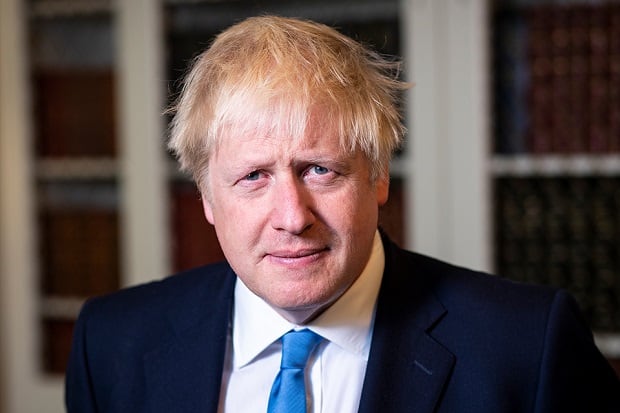
Face coverings in shops and on public transport are to become compulsory again, as a temporary measure, due to the detection of two cases of new covid variant Omicron in the UK.
The face covering restrictions come in from next week on Tuesday (November 30) and includes and other settings such as banks, post offices and hairdressers. All hospitality settings will be exempt.
At a press conference this evening the PM said as well as adding a number of countries to the UK travel red list, including Malawi, Mozambique, Zambia and Angola, measures needed to be taken to tighten protection in the UK.
These include requiring anyone who enters the UK to take a PCR test by the end of the second day after their arrival, and to self-isolate until they have a negative result.
All contacts of those who test positive with a suspected case of Omicron are to self-isolate for ten days, regardless of vaccination status.
COVID UPDATE: Face coverings will become compulsory on public transport and in shops. Not including hospitality. pic.twitter.com/pq3TdftcOB
— UK Prime Minister (@10DowningStreet) November 27, 2021
He added: “We will also go further in asking all of you to help contain the spread of this variant, by tightening up the rules on face coverings in shops and on public transport.”
He also urged people to get their booster jabs, saying: “We don’t yet exactly know how effective our vaccines will be against Omicron, but we have good reasons for believing they will provide at least some measure of protection.
“And if you are boosted – your response is likely to be stronger. So it’s more vital than ever that people get their jabs, and we get those boosters into arms as fast as possible.”
COVID UPDATE: All international arrivals entering England must take a day 2 PCR test and self-isolate until they receive a negative result. pic.twitter.com/BuQcUzkFMb
— UK Prime Minister (@10DowningStreet) November 27, 2021
The government will accelerate the booster campaign and look at widening eligible groups and reducing the gap between the second dose and the booster.
He added: “The measures that we are taking today – including on our borders and face masks – are temporary and precautionary, and we will review them in three weeks.
“At that point we should have much greater information about the continuing effectiveness of our vaccines.”
One case of the new variant has been located in the Chelmsford area and the other in Nottingham. The government says early indications suggest this variant may be more transmissible than the Delta variant and current vaccines may be less effective against it. A rapid rise in infections in South Africa has been attributed to the spread of this new variant of COVID-19.
The seven day covid positive rolling rate for Thanet is 450.3 per 100,000. The England average is 434.1 and the UK average is 437.(As of November 22, according to government data.)

